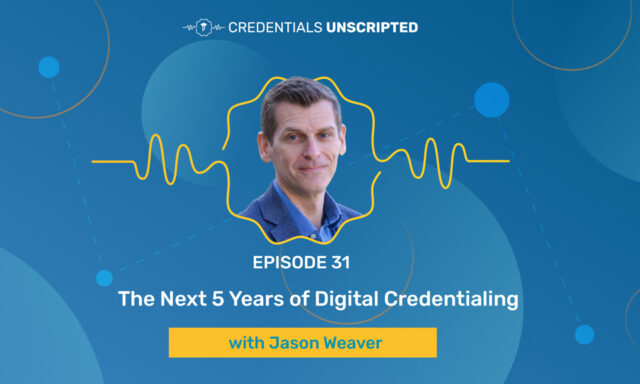
Parchment News
The Next 5 Years of Digital Credentialing
We use cookies to help you navigate efficiently and perform certain functions. You will find detailed information about all cookies under each consent category below.
The cookies that are categorized as "Necessary" are stored on your browser as they are essential for enabling the basic functionalities of the site. ...
Necessary cookies are required to enable the basic features of this site, such as providing secure log-in or adjusting your consent preferences. These cookies do not store any personally identifiable data.
Functional cookies help perform certain functionalities like sharing the content of the website on social media platforms, collecting feedback, and other third-party features.
Analytical cookies are used to understand how visitors interact with the website. These cookies help provide information on metrics such as the number of visitors, bounce rate, traffic source, etc.
Performance cookies are used to understand and analyze the key performance indexes of the website which helps in delivering a better user experience for the visitors.
Advertisement cookies are used to provide visitors with customized advertisements based on the pages you visited previously and to analyze the effectiveness of the ad campaigns.
Other cookies are those that are being identified and have not been classified into any category as yet.
That Earth Day is now in its 46th year and celebrated in an estimated 193 countries speaks to the progress we’ve already made in preserving the planet.1 Not only do we recycle more often and invest huge sums of money in sustainable energy, but there’s also a more targeted discussion about the risks of climate change happening in classrooms and governmental chambers around the world.
By many standards we’ve come a long way, but there’s so much more still to do. Top of the list should be reducing the extraordinary amount of paper we waste producing documents that could, and should, be digitized.
Waste Not, Want Not
Catalog Spree and Paper Karma teamed up in 2014 to document the scope of the problem. Their survey of public data found that the average office worker uses 10,000 sheets of copy paper each year.2 That wouldn’t be so bad if much of the printed material didn’t end up in the trash. Yet it does: Paper and cardboard accounted for roughly 27 percent of municipal waste in 2012. Chances are that ratio hasn’t moved much in the years since.
To get it down we’re going to have to rethink what deserves to be on paper. Here are six styles of documents that should be 100% digital within a few years, if they aren’t already.
Auto registration and insurance data. Why do police officers still ask for license and registration when the most up-to-date information (at least on registrations) is accessible via onboard computers in every cruiser? Forcing drivers to keep paper is repetitive, and when you think about the massive amount of paper used to send updated vehicle registration to every licensed vehicle owner who renews, the waste is a bit nonsensical.
Coupons. For some, couponing is like extreme sports. The rest of us either don’t get the newspaper, and therefore don’t get as many paper coupons as we used to, or can’t be bothered to take the time to search for relevant coupons when services such as Honey and RetailMeNot make it easy to find discounts online.3
Diplomas, transcripts, and certificates. These crucial documents follow you long after graduation yet aren’t portable until they’re made digital. We think that’s an essential addition, and it’s what we work on at Parchment every day. Already, thousands of schools today rely on Parchment to issue digital credentials through our platform. We expect many more issuing not only transcripts but also digital diplomas and professional certificates in the years to come.
Start Now
Making these documents digital won’t cure our paper addiction by next Earth Day, but it will likely get governmental agencies, department stores, office buildings and technology companies to rethink the concept of a “paper copy”. To go even further, we need to figure out how to get office workers to cut back on printing memos, emails, and the like. And yet any start is a good one.
In this case, digitizing the likes of catalogs, coupons, transcripts, and more would not only cut down on waste and clutter, it could also make the documents themselves more useful. Digital coupons could be automatically uploaded to a smartphone for capturing savings at checkout. And digital transcripts could give admissions professionals and potential employers 1-click access to contextual information for making more informed decisions. In that sense, prioritizing the planet isn’t just about living cleaner and healthier. It’s also about living smarter.
SOURCING:
